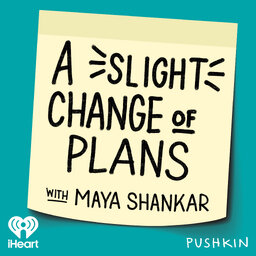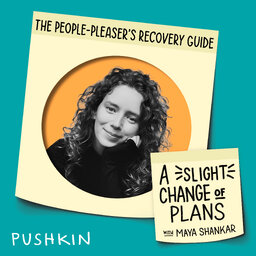How to Build Empathy and Avoid Burnout
For a long time, scientists believed our capacity for empathy remains more or less fixed throughout our lives. But research by Jamil Zaki, a psychology professor at Stanford, shows that empathy is actually a skill we can cultivate. Jamil explains that there are different types of empathy — three, to be exact! — and we can learn to be more discerning about when we apply them. Maya and Jamil also discuss the dangers of caring too much, and how we can show compassion for others while avoiding burnout.
For a behind-the-scenes look at the show, follow @DrMayaShankar on Instagram.
 A Slight Change of Plans
A Slight Change of Plans


